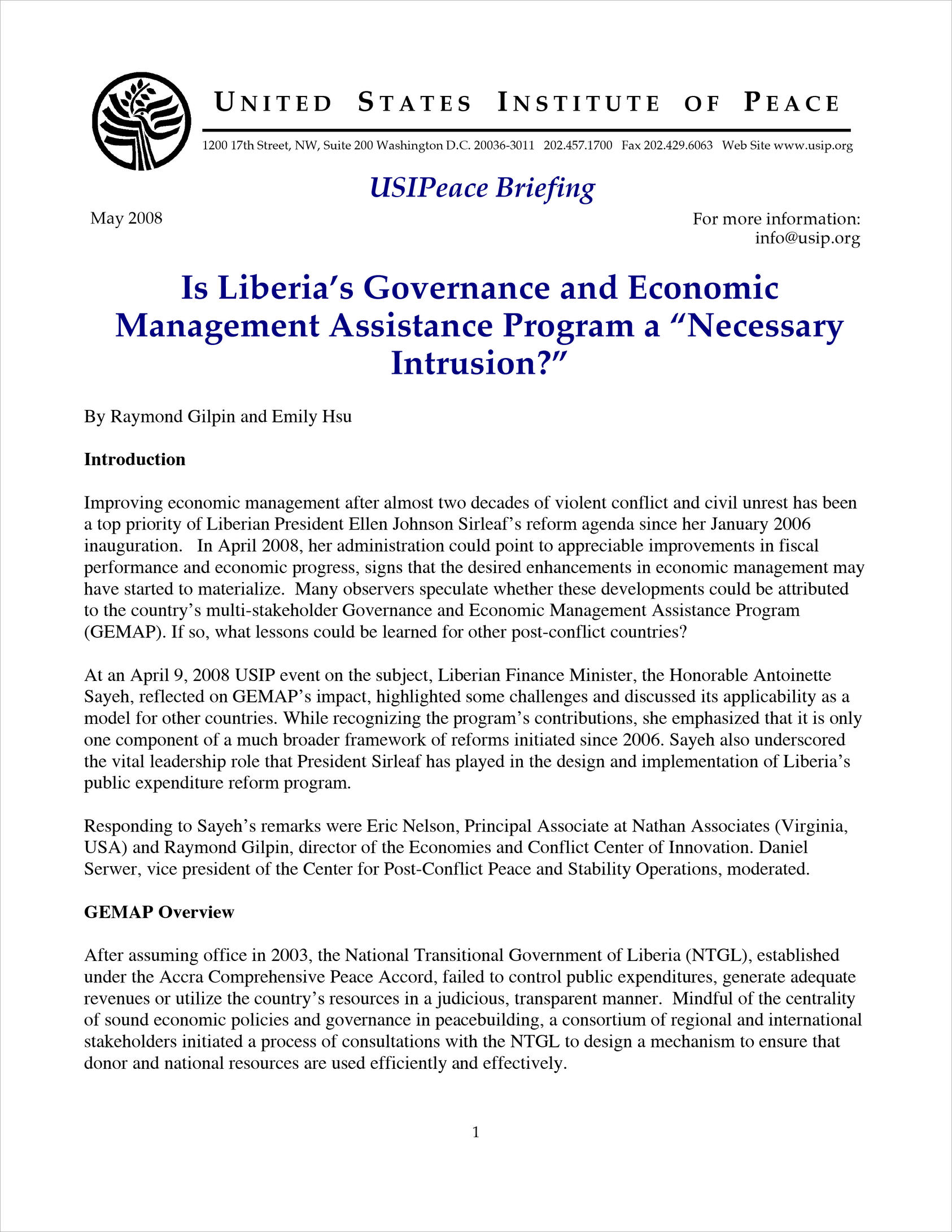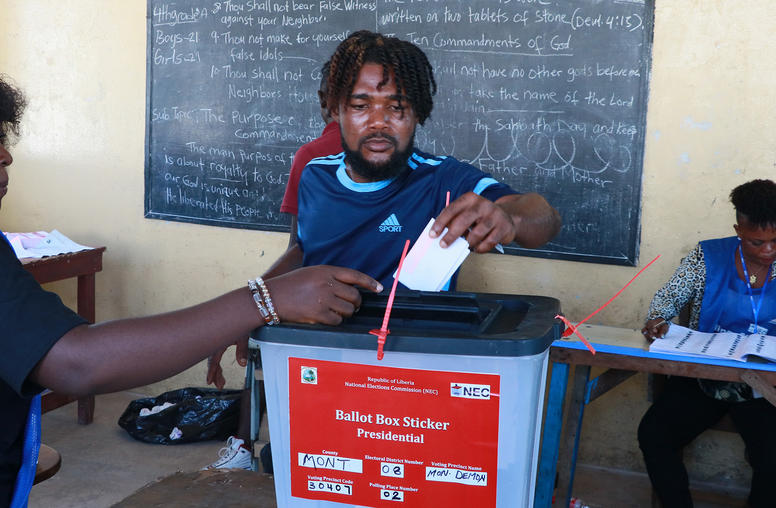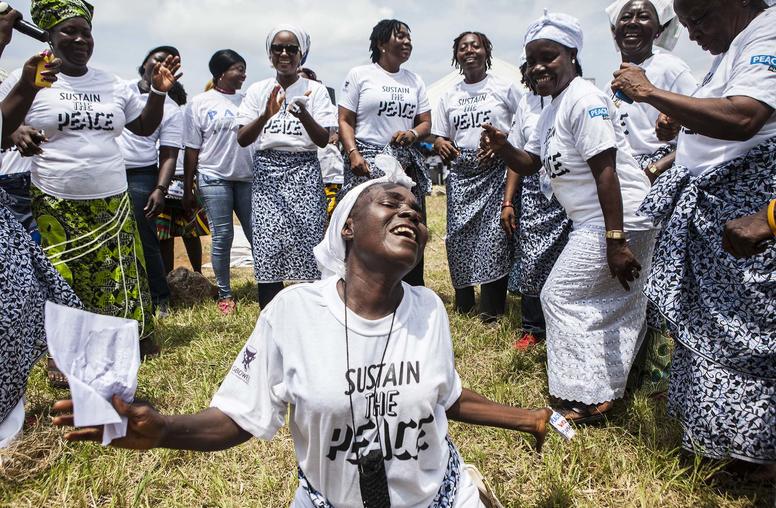GEMAP in Liberia: A Model for Economic Management in Conflict-Affected Countries
A Liberia Working Group and Center for Economies and Conflict public event

Liberia's Governance and Economic Management Assistance Program (GEMAP) was established in 2005 to promote fiscal accountability and transparency. This multi-year initiative is supported by a wide range of stakeholders including bilateral partners, multilateral institutions and civil society. In many ways, GEMAP has been central to rebuilding and restructuring Liberia's war-torn economy and putting the country on a path toward sustained poverty reduction and equitable economic growth.
In spite of its many accomplishments, many questions still linger. Is GEMAP sustainable? Is GEMAP fully consistent with other aspects of Liberia's reform agenda? Has GEMAP improved policy sequencing and stakeholder coordination? Beyond Liberia, many wonder whether GEMAP is scalable and whether it could be used as a template for other conflict-affected countries. We are honored to have Liberia's finance minister, Dr. Antoinette Sayeh, lead this timely and landmark discussion.
Speakers
- The Honorable Antoinette Sayeh, Presenter
Minister of Finance, Republic of Liberia - Raymond Gilpin, Discussant
Director, Economies and Conflict, U.S. Institute of Peace - Eric Nelson, Discussant
Principal Associate, Nathan Associates - Dan Serwer, Moderator
U.S. Institute of Peace


